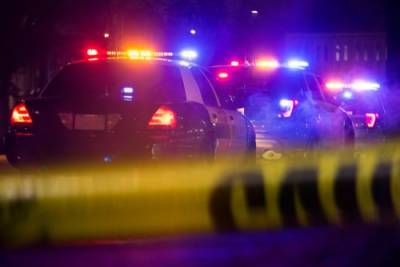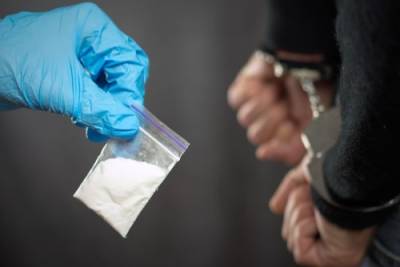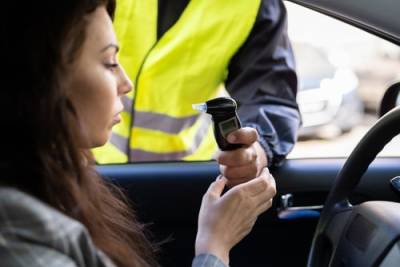
 Illinois is one of 18 states that legalized the use of marijuana for recreational purposes. However, that does not mean that anyone can use this substance at anytime without consequence. There are still many marijuana-related laws on the books, including laws limiting the quantity of marijuana a person can possess and where he or she can possess it. For example, Illinois law prohibits the use of cannabis in schools or on public transportation. It is also illegal to drive under the influence of cannabis.
Illinois is one of 18 states that legalized the use of marijuana for recreational purposes. However, that does not mean that anyone can use this substance at anytime without consequence. There are still many marijuana-related laws on the books, including laws limiting the quantity of marijuana a person can possess and where he or she can possess it. For example, Illinois law prohibits the use of cannabis in schools or on public transportation. It is also illegal to drive under the influence of cannabis.
If you or a loved one were charged with a cannabis-related offense, do not make the mistake of taking these charges lightly. While the use of marijuana is legal in certain circumstances, it is still possible to face significant criminal penalties for a marijuana offense.
THC is the component in cannabis plants responsible for the “high” or cognitive effects of the substance. Individuals under the influence of THC usually experience slowed reaction time, reduced coordination, and impaired judgement. Multiple scientific studies show the relationship between cannabis use behind the wheel and impaired driving. Consequently, it is illegal for Illinois drivers to drive while under the influence of marijuana–even if the driver has a valid medical marijuana card.
 Everyone should be aware of their rights – whether they are currently involved in the criminal justice system or not. The United States Constitution and state-level legislation protect our right to avoid self-incrimination, be free from unreasonable searches of our property, and much more.
Everyone should be aware of their rights – whether they are currently involved in the criminal justice system or not. The United States Constitution and state-level legislation protect our right to avoid self-incrimination, be free from unreasonable searches of our property, and much more.
If you or a loved one were arrested for a criminal offense, it is even more crucial that you fully understand the rights and responsibilities of criminal defendants. Part of this understanding requires myths and rumors about the police to be debunked.
Television shows and movies have helped perpetuate many myths and rumors about police officers. Perhaps the most enduring of these myths is the legend that police must identify themselves as law enforcement officers. You may have heard that police must answer “yes” if you ask them, “Are you a cop?”
 Did you know that the human brain does not finish developing until a person is in their mid to late 20s? The prefrontal cortex, the area of the brain that regulates impulse control and problem-solving, is one of the last parts of the brain to reach full development. It is no surprise that teenagers and young people sometimes make rash, irresponsible decisions.
Did you know that the human brain does not finish developing until a person is in their mid to late 20s? The prefrontal cortex, the area of the brain that regulates impulse control and problem-solving, is one of the last parts of the brain to reach full development. It is no surprise that teenagers and young people sometimes make rash, irresponsible decisions.
If your child was charged with theft, possession of a fake ID, assault, drunk driving, or another criminal offense, do not lose hope. The state of Illinois recognizes that many juvenile offenders are good people who made a poor decision. The state has instituted various diversion programs that may keep juvenile offenders out of detention facilities and give them a chance to turn their lives around.
Fortunately, Illinois prioritizes rehabilitation over punishment when it comes to juvenile offenders. The state offers several diversion programs that allow juvenile offenders get the help they need and avoid strict criminal penalties. Completing certain diversion programs may result in the dismissal or reduction of criminal charges. Other programs are used to help juvenile offenders avoid further criminal charges. For example, the llinois Second Chance program provides services to offenders under the age of 17 ½ who suffer from addiction or mental health problems who are being released from correctional facilities. The program provides aftercare young people need to reduce the chances of recidivism.
 A misdemeanor DUI is bad enough. You could face a bit of jail time, and you will probably have your license revoked for a period of time. However, when you are facing felony charges related to a DUI, your situation is very serious. You could be facing more than a year of prison time, and it could be much longer than a year depending on the particular circumstances. Charging a DUI as a felony is an extreme way to handle extreme DUI cases. For you to be charged with a felony DUI, there must have been some fact or circumstances that made your alleged conduct much more serious than an average, run-of-the-mill drunk driving incident. If you have been charged with a DUI-related felony, it is important that you are represented by an experienced lawyer who can try to minimize the impact this case will have on your life.
A misdemeanor DUI is bad enough. You could face a bit of jail time, and you will probably have your license revoked for a period of time. However, when you are facing felony charges related to a DUI, your situation is very serious. You could be facing more than a year of prison time, and it could be much longer than a year depending on the particular circumstances. Charging a DUI as a felony is an extreme way to handle extreme DUI cases. For you to be charged with a felony DUI, there must have been some fact or circumstances that made your alleged conduct much more serious than an average, run-of-the-mill drunk driving incident. If you have been charged with a DUI-related felony, it is important that you are represented by an experienced lawyer who can try to minimize the impact this case will have on your life.
 While battery is typically only a misdemeanor in Illinois, aggravated battery is a felony. Battery is defined as causing physical harm to or making physical contact with a person in a way that is insulting or provoking. A single slap or spitting on someone may be considered a simple (misdemeanor) battery. When aggravated battery is charged, it is because there were circumstances present that make the attack much more serious.
While battery is typically only a misdemeanor in Illinois, aggravated battery is a felony. Battery is defined as causing physical harm to or making physical contact with a person in a way that is insulting or provoking. A single slap or spitting on someone may be considered a simple (misdemeanor) battery. When aggravated battery is charged, it is because there were circumstances present that make the attack much more serious.
Depending on the circumstances, aggravated battery could be charged as anything between a Class 3 felony and a Class X felony - which could carry a life sentence. If you are facing an aggravated battery charge, it is important that you secure excellent legal representation as soon as possible - ideally, before arraignment.
Illinois state law sets out a list of aggravating factors that can cause a battery to be charged as a felony. If you have been charged with aggravated battery, it is probably because the state believes that you battered someone and one of these circumstances was present:
 There is a very good reason that every defendant is considered innocent until proven guilty - some of them are indeed genuinely innocent of the crime they are accused of. Getting arrested and charged is going to be unpleasant no matter what, but winding up in handcuffs over something you did not do can be downright traumatic. Getting accused of something you flat-out did not do is a horrible feeling. Actually facing criminal prosecution for a crime you are not guilty of is terrifying.
There is a very good reason that every defendant is considered innocent until proven guilty - some of them are indeed genuinely innocent of the crime they are accused of. Getting arrested and charged is going to be unpleasant no matter what, but winding up in handcuffs over something you did not do can be downright traumatic. Getting accused of something you flat-out did not do is a horrible feeling. Actually facing criminal prosecution for a crime you are not guilty of is terrifying.
If you have found yourself in this situation, it is important that you secure strong legal representation. Do not count on the situation to sort itself out. People can and do get wrongfully convicted and imprisoned.
Mistaken arrests can happen for a variety of reasons. A strong defense is necessary, even if you did not commit the crime. Reasons innocent people can be charged with crimes include:
 Getting arrested is not very romantic, and jail is not a pleasant place to spend Valentine’s Day. Unfortunately, crime tends to spike on Valentine’s Day - which is true of most holidays. Between Valentine’s Day and Superbowl Sunday, the local jails may be quite crowded. Some crimes are more common than others on this holiday for sweethearts. From drunk driving to domestic violence, increased alcohol consumption often plays a role in holiday arrests.
Getting arrested is not very romantic, and jail is not a pleasant place to spend Valentine’s Day. Unfortunately, crime tends to spike on Valentine’s Day - which is true of most holidays. Between Valentine’s Day and Superbowl Sunday, the local jails may be quite crowded. Some crimes are more common than others on this holiday for sweethearts. From drunk driving to domestic violence, increased alcohol consumption often plays a role in holiday arrests.
If you find yourself charged with a crime this Valentine’s Day, it is important that you take your case seriously, even if it seems like a rather minor charge. Any kind of a criminal record can get you passed over for jobs or even housing. It is important to contact an attorney as soon as you know that you have been charged with a crime.
Some crimes are more common than others on Valentine’s Day. While the day is supposed to be for happy couples to celebrate, some not-so-happy couples or singles end up celebrating in jail. Common reasons people get arrested on Valentine’s Day include:
 Public opinions about certain substances, like marijuana, have changed significantly in the last few decades. However, cocaine is still an illicit substance and criminal charges for cocaine possession are harsh. If you or a loved one were charged with unlawful possession of a controlled substance, reach out to a lawyer for personalized guidance on how to handle the situation.
Public opinions about certain substances, like marijuana, have changed significantly in the last few decades. However, cocaine is still an illicit substance and criminal charges for cocaine possession are harsh. If you or a loved one were charged with unlawful possession of a controlled substance, reach out to a lawyer for personalized guidance on how to handle the situation.
Cocaine is considered a Schedule 1 controlled substance in Illinois. Schedule 1 drugs have a high potential for abuse and no accepted medical purpose. Consequently, possession of cocaine is considered a serious criminal offense. If you are caught with cocaine in your possession or in your property, you face felony charges. The severity of the charge depends on the amount of cocaine allegedly in your possession. Under Illinois law, possession of cocaine is a Class 1 felony offense. If you are convicted of cocaine possession, you could face many years in prison.
 There are two main chemical tests used to determine a person’s blood alcohol content (BAC). The first is a breath test, often called a breathalyzer, that determines blood alcohol based on the amount of alcohol on the test taker’s breath. The second is a blood test that directly determines the amount of alcohol in the subject’s blood. However, these tests are not infallible. False positives and inaccurate results can be caused by human error, improper storage, defective devices, and several other issues. If you or a loved one are facing charges for driving under the influence (DUI), do not lose hope. You or your loved one may still be able to avoid conviction by discrediting the results of chemical BAC tests.
There are two main chemical tests used to determine a person’s blood alcohol content (BAC). The first is a breath test, often called a breathalyzer, that determines blood alcohol based on the amount of alcohol on the test taker’s breath. The second is a blood test that directly determines the amount of alcohol in the subject’s blood. However, these tests are not infallible. False positives and inaccurate results can be caused by human error, improper storage, defective devices, and several other issues. If you or a loved one are facing charges for driving under the influence (DUI), do not lose hope. You or your loved one may still be able to avoid conviction by discrediting the results of chemical BAC tests.
If you have even been pulled over on suspicion of drunk driving, you are probably familiar with the portable breathalyzer tests carried by police officers. These preliminary tests are used to create probable cause for a DUI arrest. However, the results of the preliminary breathalyzer are not admissible as evidence against the defendant in DUI proceedings. Typically, once an alleged drunk driver is taken to the police station, he or she is required to complete a second breath test on a device with greater accuracy. The results of this evidentiary breath test may be used as evidence in court. However, both evidentiary tests and preliminary tests can be unreliable.
 According to the World Health Organization, alcohol is more closely associated with aggressive behavior than any other drug. Unfortunately, this makes bar fights a common occurrence in DuPage County and throughout the state. Police are often called to the scene when a bar fight results in serious injury. In the chaotic aftermath of a fight, police may not immediately know which parties are the aggressors and which are the victims. If you were arrested after a bar fight, you may be facing charges for assault or aggravated assault. These offenses are punishable by significant criminal consequences, including imprisonment so it is important to take action right away.
According to the World Health Organization, alcohol is more closely associated with aggressive behavior than any other drug. Unfortunately, this makes bar fights a common occurrence in DuPage County and throughout the state. Police are often called to the scene when a bar fight results in serious injury. In the chaotic aftermath of a fight, police may not immediately know which parties are the aggressors and which are the victims. If you were arrested after a bar fight, you may be facing charges for assault or aggravated assault. These offenses are punishable by significant criminal consequences, including imprisonment so it is important to take action right away.
In Illinois, assault is a Class C misdemeanor offense. It is punishable by up to 30 days in jail and a maximum $1,500 fine. If the defendant allegedly threatened to use or used a firearm, or if the offense was directed at certain protected persons, the charge may be elevated to aggravated assault. Aggravated assault charges vary, but someone convicted of aggravated assault in Illinois may face up to several years in prison. Therefore, it is important to do whatever you can to avoid conviction.
 A lawyer’s time and advice are his stock and trade.
A lawyer’s time and advice are his stock and trade.